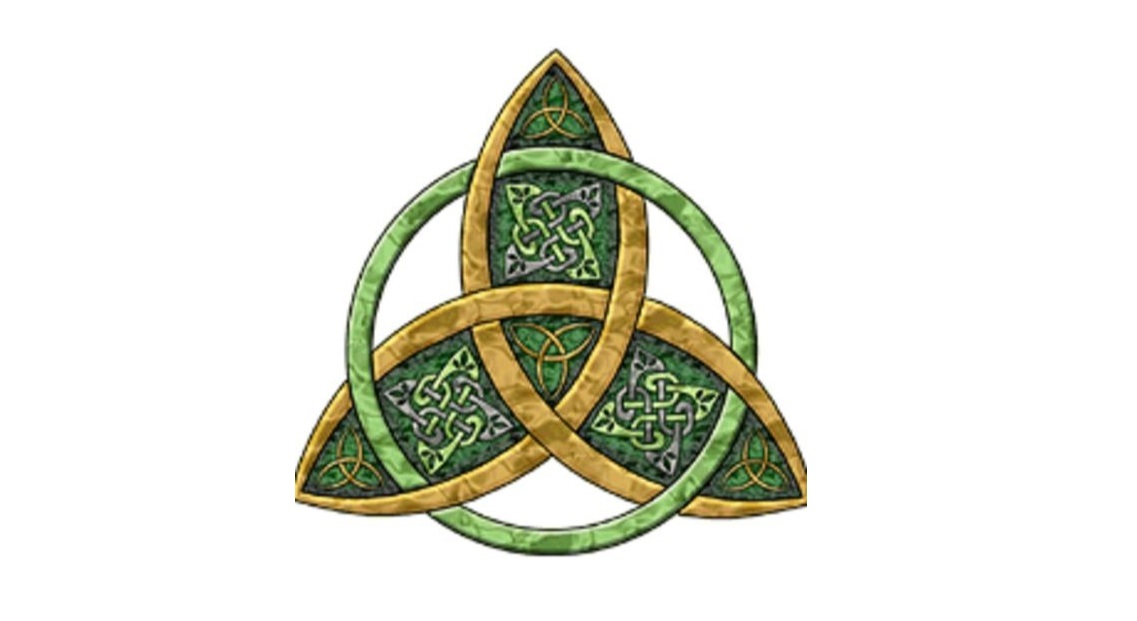Jesus
God’s Goodness in Our Humanity
Photo credit: Unknown, Creative Commons Zero.
Introduction
The Triune God reveals Himself fully in Jesus. How then do we understand this claim? Also, unique Protestant intellectual problems about limited atonement and double predestination are mistaken; see below for more resources on those issues.
Messages and Essays on God’s Goodness in Jesus, on Atonement:
Evil and the Christian God and Theology of Atonement
This paper explores how the character of God drives the type of story one lives in, and the type of atonement required to be consistent. Evil and the Christian God is a shorter version of the paper above.
Images of God in a Broken World
This is a series of three messages from Paul's letter to the Colossians dealing with (1) how we inherit the image of an evil "god" from a broken world; (2) how Jesus is the accurate and perfect image of God despite our broken world, because he healed human nature in himself; and (3) how Jesus renews the image of God in us by his Spirit, to share God's goodness in a broken world
A paper submitted to the Pappas Patristics Institute in March 2019. This is an attempt at reconstructing his lost work, which would be vital in the world today. See the short version, Why God is Not Evil, Not One Bit, According to Irenaeus of Lyons
Has many more resources covering the topic of atonement and the nature of Jesus’ death. This includes practical pastoral and social justice implications; tools for evangelism, preaching, worship, discipleship, and biblical study; and sources in Scripture, the early church, as well as Orthodox, Catholic, and Protestant scholars.
C.S. Lewis' Theology of Atonement
A paper written for Dr. Gary Deddo’s class, The Theological Thought of C.S. Lewis, through Fuller Seminary. It is a thorough examination of C.S. Lewis' writings and his use of Irenaeus and Athanasius.
Why Penal Substitution Damages Asian-Americans
An example of how a culturally biased theology negatively impacts another cultural group
Christ's Proclamation to the Dead: An Analysis of 1 Peter 3:19 and its Significance
This short analysis of 1 Peter provides the back story to the Old Testament: When God took human life, He was not consigning people to hell, but preserving their last possible choice - for Jesus.
Text of an essay, along with long and short versions of a slide presentation. The long version comes from the 2022 Reconstruction class. This is a full exploration of how hell is the love of God because (1) the united church taught that for over a thousand years; (2) God's Triune nature requires all other activity of God to flow out of His love; (3) literary exegesis of fire shows that it is God's call to purification. This study largely depends on the theme of fire in Scripture; please see the resources on the page God’s Goodness in the Theme of Fire.
On Facebook, Dec 25, 2020, a sprawling discussion that started with a quote by Athanasius, explores God’s activities in both the Old Testament and in Christ, shows the importance of including “human nature” in the atonement and not just “human personhood,” and “human desires” in salvation and not just “human deeds.”
Messages and Essays on God’s Goodness in Jesus, on Predestination and Free Will:
An attempt at explaining how God interacts with our prayers.
The Son Reveals and Hides the Father?: An Analysis of Matthew 11:25 - 30
This analysis of Jesus' strong language explains the motifs of violence, exclusion, and limitation.
Many Called, Few Chosen? An Analysis of Matthew 22:1 - 14
This analysis of Jesus' strong language explains the motifs of violence, exclusion, and limitation, especially as relates to Israel. Jesus was speaking to Jewish leaders on the edge of militancy themselves.
An hour long presentation, going in depth into Romans 9 - 11, paying attention to its chiastic structure, and intertextual references to Exodus, Deuteronomy, and Isaiah; also notes early church interpretation of "free will" and the hardening of hearts. The implications of two different views of this passage: The high federal Calvinist view, and the patristic view. Important quotations included. Summarized by Finney Raju, Predestination and Free Will in Romans 9 - 11, by Mako A. Nagasawa (Society of Evangelical Arminians, Oct 10, 2018) Paul's Definition of Predestination: An Analysis of Romans 9 - 11 is a shorter introduction and summary to the presentation above.
Predestination and Free Will: Five Protestant Views
A quick survey of five Protestant views.
Free Will in Patristic Theology
Quotations from early church theologians demonstrating their agreement, until Augustine, that is.
John Calvin: Quotes on Universal Atonement
Surprising places in John Calvin's work where he admits that biblical exegesis does not produce the doctrine of limited atonement.
Other Resources on Predestination and Human Free Will
People who have left Christian faith because they understood God’s character as partly evil. which is a problem in Augustinian-Lutheran-Reformed theology: SMD
G.F. Wiggers, Augustinism and Pelagianism (1840). A transcription of his book by TheGospelTruth.net, critiques Augustine’s double predestination theory, saying “From all this comes the result, that Augustine introduced into the ecclesiastical system several views entirely new”. ch.22.
Benedict Seraphim, St. John Cassian: On Grace and Free Will. This is Life! blog, Mar 25, 2005. a dialogue with John Hendryx, founder of the website monergism.com. This is a helpful representation of what an actual dialogue might have been between John Cassian and Augustine of Hippo.
Seraphim Rose, The Place of Blessed Augustine in the Orthodox Church. Saint Herman of Alaska Press | Amazon page, Aug 2007. A very helpful historical overview of Augustine and his disciple Prosper of Aquitaine, and their reception by other Christian leaders especially in Gaul
Scot McKnight, Who Are the Neo-Reformed? BeliefNet blog, Feb 2009.
Matt Bradshaw, Christopher G. Ellison, and Jack P. Marcum, Attachment to God, Images of God, and Psychological Distress in a Nationwide Sample of Presbyterians. International Journal for the Psychology of Religion, 2010.
Perry C. Robinson, The Love and Hate of God. Energetic Procession blog, Jul 8, 2012. An Eastern Orthodox perspective.
Thomas Seraphim Hamilton, The True Beauty of Romans 9. OrthoCath blog, Aug 2, 2012. Hamilton offers an excellent reading of Paul’s own reading of Israel’s history.
Brian Zahnd, John Piper and Allah Akbar. Brian Zahnd, Aug 12, 2013.
John Piper, How Does it Glorify God to Predestine People to Hell?. Desiring God, Oct 21, 2013. An example of carrying out the logical, but wrong, implications of Augustine’s double predestination theory, received by Luther and Calvin.
David Bentley Hart lecture on Nihilism and Freedom
Robin Phillips, Why I Stopped Being a Calvinist. Part 1. : Calvinism Presents a Dehistoricized Bible. Orthodoxy and Heterodoxy weblog, Jan 9, 2014.
Robin Phillips, Why I Stopped Being a Calvinist. Part 2. : Calvinism Destroys God's Justice. Orthodoxy and Heterodoxy weblog, Jan 10, 2014.
Robin Phillips, Why I Stopped Being a Calvinist. Part 3. : Calvinism Dislocates God from Our Experience of Him. Orthodoxy and Heterodoxy weblog, Jan 21, 2014.
Robin Phillips, Why I Stopped Being a Calvinist. Part 4. : The Heresy of Monergism. Orthodoxy and Heterodoxy weblog, Jan 22, 2014.
Robin Phillips, Why I Stopped Being a Calvinist. Part 5. : A Deformed Christology. Orthodoxy and Heterodoxy weblog, Jan 23, 2014.
Austin Fischer, Young, Restless, and No Longer Reformed: Black Holes, Love, and a Journey In and Out of Calvinism. Cascade Books | Amazon page, 2014. See also T.C. Moore's review.
Rowan Williams, What is Divine Power? ObjectiveBob, Mar 1, 2014. A 12 min video.
Roger Olson, Why (High) Calvinism is Impossible. Patheos blog, Mar 16, 2014.
T.C. Moore, Muslim Open Theists, Politics, T.F. Torrance, and Why the God-Man Matters. T.C. Moore blog, Mar 23, 2014.
C.S. Lewis Doodle, Watch Hand-Drawn Animations of 7 Stories and Essays by Lewis. Open Culture, Apr 30, 2014.
Zondervan, Old Debate, New Day: Calvinism - Proposition 1. Zondervan, Aug 28, 2014. A 55 minute video.
Ben Witherington, Does Romans 9 - 11 Teach Calvinist Predestination? Ministry Matters video, Sep 2014.
Reknew, On the Calvinism Debate in Chicago Last Week. Reknew, Sep 1, 2014. and T.C. Moore's blog on it.
Tony Jones, With Mark Driscoll Gone, We’ve Only Got John Piper To Show Us the Insanity of Hypercalvinism. Patheos, Nov 6, 2014.
N.T. Wright, On the Importance of Trinitarian Faith. Fuller Seminary video, Nov 8, 2014.
Richard Beck, When God Became the Devil. Experimental Theology blog, Nov 20, 2014. See also the comments.
N.T. Wright, On Predestination. Samuel Selvin, Dec 25, 2014. A five minute video from a lecture.
Mike Feazell, Predestination: Does God Choose Your Fate, or Does He Let You Choose It? Grace Communion International.
Martin M. Davis, The Christian Doctrine of God: Father, Son, and Holy Spirit. AsiAfrica Ministries, 2015. A curriculum for pastors and churches on how to teach the Trinity.
Greg Boyd, Does the Doctrine of the Trinity Matter? ReKnew, May 11, 2015. See also Greg Boyd, The Starting Point for Knowing God. ReKnew, Oct 5, 2015.
Mikayla Bean, Anne Graham Lotz Says Terrorist Attacks Are Just God's Way Of Demonstrating His Love. RightWing Watch, Jun 15, 2015.
Zach Hoag, Goldilocks Theology and God's Power - Thomas Oord. Zach J. Hoag, Nov 12, 2015.
David Bentley Hart, Interview - Crackers and Juice Podcast. ObjectiveBob, Feb 27, 2017. 50 min mark on Calvin; 55:30 min mark on Barth
Tom Belt, Toward a Theology of Violence. An Open Orthodoxy, Apr 18, 2017.
Sangwon Yang, Divine Sovereignty: John Calvin's Functional Epistemological Principle. Duke Divinity paper, May 2017.
Ty Gibson, Where Psychology and Theology Meet. ReKnew, Jun 2017. Gibson argues that the view of God’s omni-causality covers over our actual human shame, and is used to deflect our attention from it.
Thomas Jay Oord, Love Before Power. Thomas Jay Oord blog, Mar 13, 2023.
“Many theologians talk about God’s omnipotent freedom to do whatever God decides. They say God can love creation, for instance, or not love it. God could have chosen not to create and remain everlastingly in solitude, and a sovereign God can freely withdraw. These claims privilege God’s omnipotent freedom from creation above God’s love for it. In them, power comes before love.
Eberhard Jüngel identifies the problem. When God is understood as “the almighty Lord,” says Jüngel, “love and mercy appear to be fundamentally secondary and subsidiary to his claim to lordship. This is the earthly way of thinking of a lord: first he has all power and then perhaps he can be merciful—but then again, perhaps not. God’s lordliness and lordship are thought of in the same general way. He is mighty, able, and free to love or not to love . . . the love of God becomes a secondary attribute.”
Alex O’Connor, Rhett McLaughlin's Calvinism led to Cognitive Dissonance. The Pristine Faith, Apr 21, 2025.
God’s Goodness: Topics:
Here’s how to navigate this section on God’s Goodness. The Introduction focuses on the biblical presentation of Father, Son, and Holy Spirit; and the implications. Human Becoming spotlights creation and humanity, especially how God made humans as human beings and human becomings. Human Desires explores how God made human desires good, but how the sin-sickness distorts those desires. Israel tackles big questions about why God needed ancient Israel, why God took human life to protect ancient Israel’s vocation. Jesus explains God revealing Himself fully in Jesus, and addresses Protestant notions of limited atonement and double predestination as incompatible with God’s Triune character of love. Holy Spirit explores the divine person of the Spirit and the gifts of the Spirit. Human Destiny explains how desire and development are part of the outworking of human becoming, destiny, and God’s goodness. Divine Fire explains why the portrayal of divine fire in Scripture is always God’s call to participate in refinement and purification. Human Suffering explains why God is good because He suffers with us since the fall, and heals the deepest suffering behind the suffering. Evil explains why God is good by solving the problem of human evil in a loving way.













